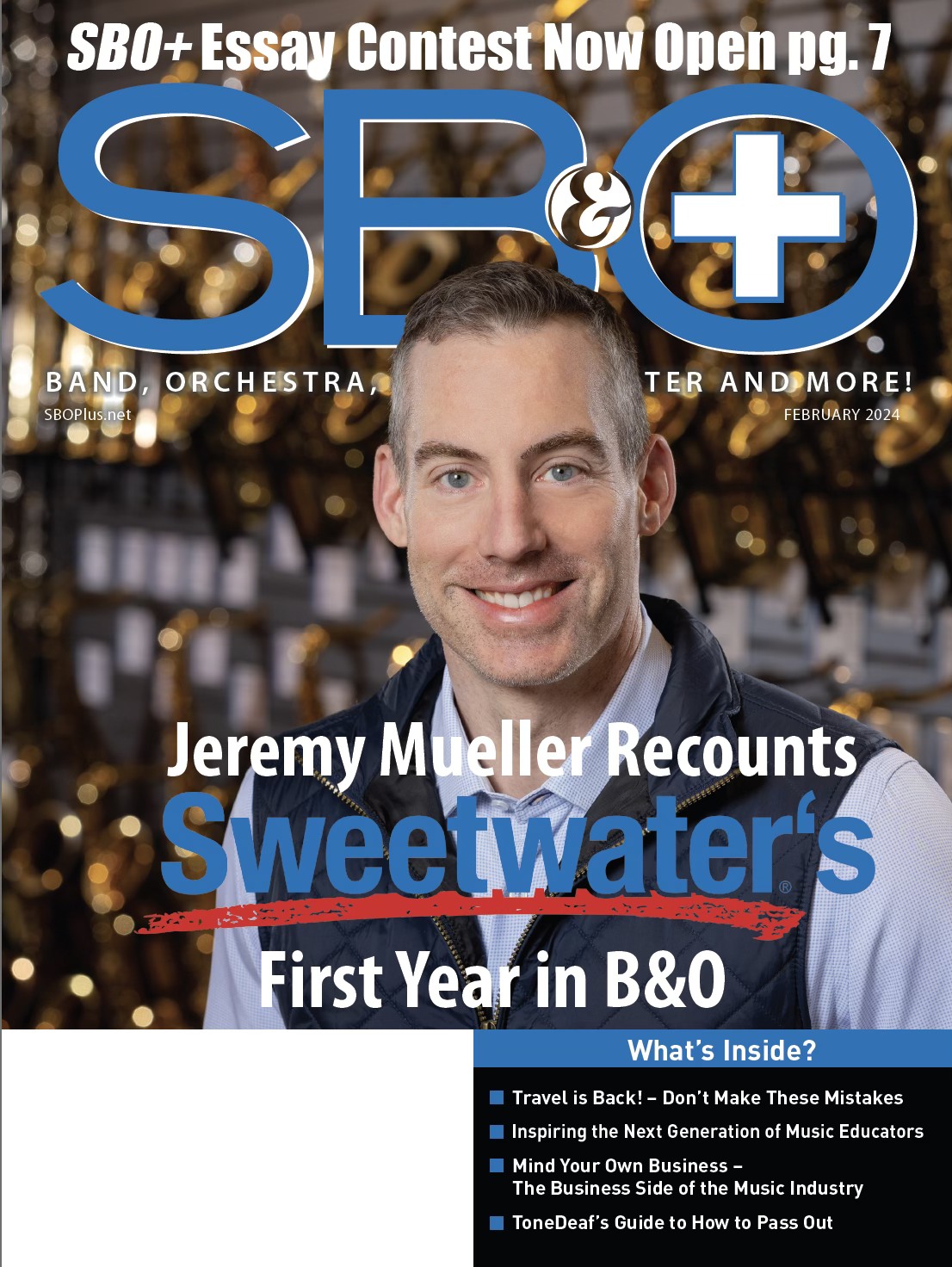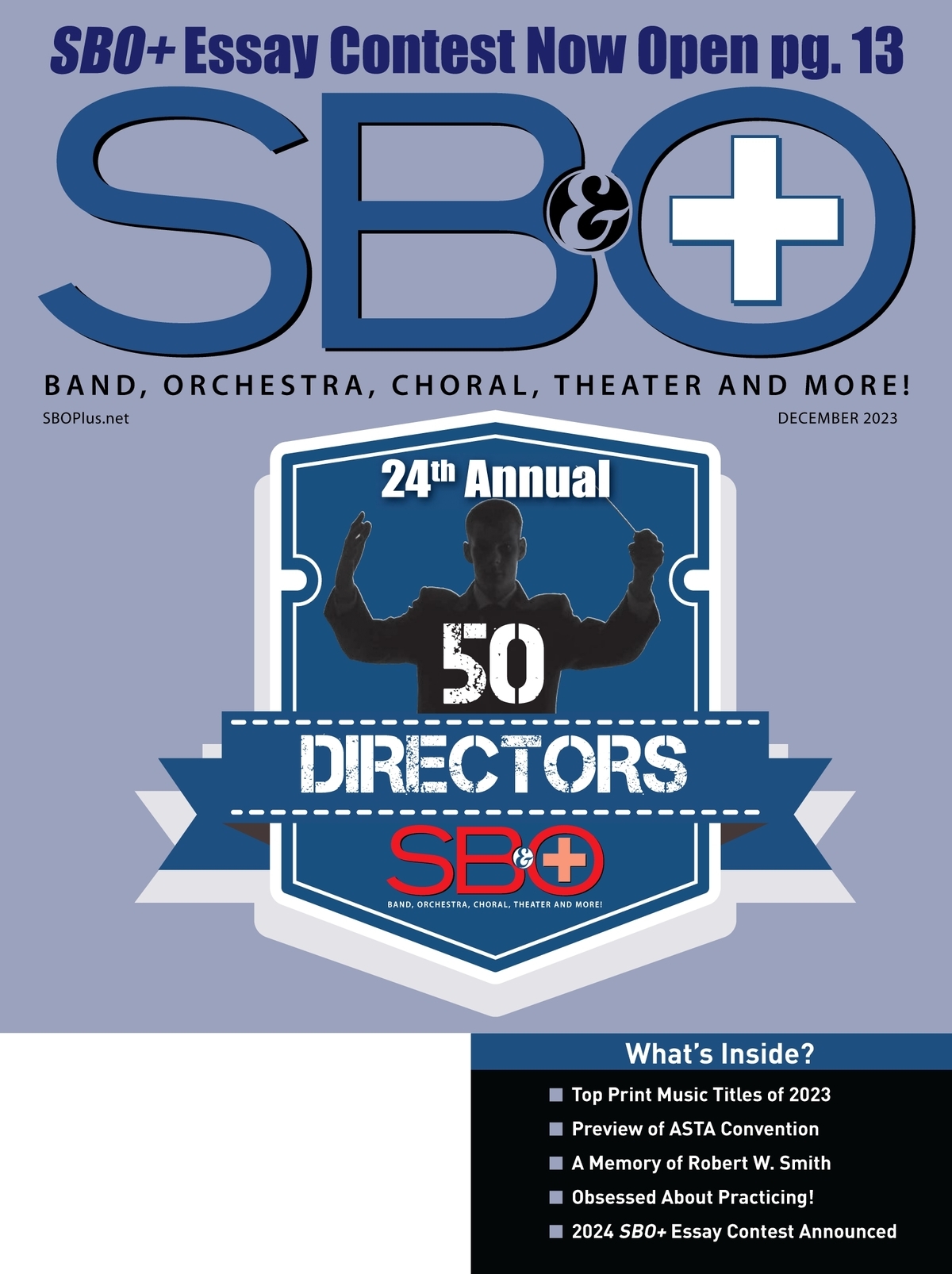EDUCATORS SUBSCRIBE FOR AS LOW AS $0.00! CLICK HERE!
 I’ve made no secret of the fact that it was music classes that motivated me to get up in the morning and go to school. My own music education experience was in a fairly middle class school system. Participation in band meant your parents had to buy or rent an instrument for you. I saw a lot of lower income kids either not sign up for band or struggle with learning to play and later drop out because they were given substandard rental instruments that made learning more difficult.
I’ve made no secret of the fact that it was music classes that motivated me to get up in the morning and go to school. My own music education experience was in a fairly middle class school system. Participation in band meant your parents had to buy or rent an instrument for you. I saw a lot of lower income kids either not sign up for band or struggle with learning to play and later drop out because they were given substandard rental instruments that made learning more difficult.
Better quality instruments won’t play themselves: one still has to sit down and commit to learning, but a saxophone with poor padding and sticky keys is harder to play than one in good condition. When you get down to it, the difference between a student having access to a high quality instrument and a poor quality instrument is almost always about how much money that student’s parents can spend.
Some school districts are purchasing instruments for their band and orchestra programs, helping to remove the cost and quality barrier from a student/parent decision to join the school music program. These schools also let students bring their own instruments to the program, allowing more privileged students to learn the instrument of their choice. Students playing school-provided instruments don’t always get to choose which instrument they want to learn. If there are only four school-provided trumpets and they’ve all been allotted, the student is still encouraged to participate, but is steered to another instrument. There is both good and bad in this arrangement, but at least every student who wants to learn to play can do so, even if it’s not the instrument they originally wanted.
I have been privileged to see some truly amazing music programs around the country–wealthy schools systems with astounding orchestra programs where top-notch instruments are provided to schools blessed with modern music production labs teaching notation, arranging, composing, recording, sound design, and sequencing using the latest technology.
Sadly, those programs are not the norm. For every one of those programs, I’ve encountered dozens struggling to provide the bare essentials. Some students wouldn’t dare dream of playing in their school band because their family might be struggling financially. There may be a lack of school-provided instruments. The student’s living conditions might prohibit them from having a quiet and secure place to rehearse. There could be dozens of factors at play. Music educators lament the lack of funding and support. They’re spread thin teaching band programs at multiple schools out of portable buildings or cafeterias, with barely enough students to even put together a class. These school systems often don’t understand the value of music education: how it positively impacts so many areas of the common core standards for other subjects outside of the arts, how it can uplift a child and encourage them to succeed in school, even if they succeed solely for the purpose of playing music. Music in the schools doesn’t just make kids smarter, it motivates them to show up, to be engaged. It helps them dream of a better life and gives them confidence.
The NAMM Foundation, an important arm of the National Association of Music Manufacturers, recently granted $214,000 for musical instruments, music teachers, and arts integration in support of Turnaround Arts schools. It supported research showing that Turnaround Arts students demonstrated significant progress in academic achievement between 2011 and 2014. Reading and math proficiency rates went up, with half of the schools seeing attendance rates increasing and suspension rates decreasing.
I applaud the organizations that help with this problem, but I’m perplexed as to why enthusiastic lack of political support is still a problem, when the direct benefits of music education have been so vividly demonstrated. I’m delighted to see my good friends at NAMM and others supporting school music programs. It’s sad that they have to do so when politicians have the ability to prioritize funding for music and arts in the schools, but simply don’t value what it does for our kids.







